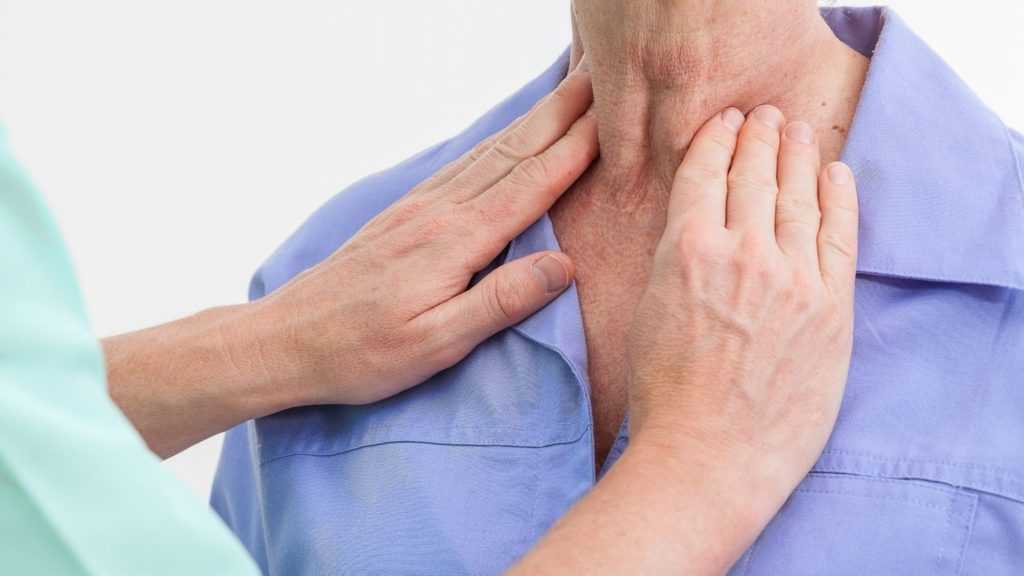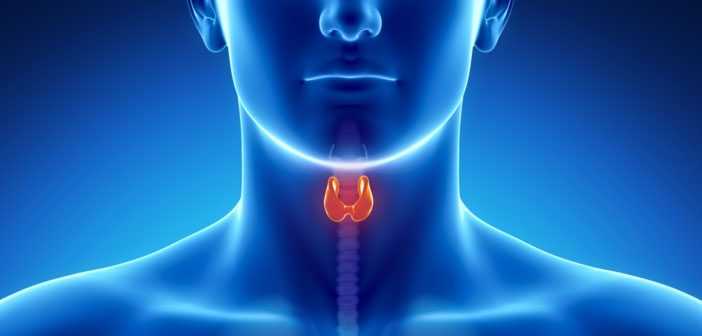What Is The Thyroid Gland?
The Thyroid could be a butterfly-shaped secretor that sits low on the front of the neck. The thyroid gland is situated in front of the windpipe and is responsible for producing and secreting hormones that regulate growth and metabolism.
Through the hormones it produces, the endocrine gland influences most of the metabolic processes in your body. Thyroid disorders will vary from a tiny low, harmless disease (enlarged gland), that needs no treatment to grievous cancer. the foremost common thyroid issues involve abnormal production of thyroid hormones. An excessive amount of endocrine leads to a condition called gland disease. Inadequate internal secretion production results in glandular disease. Although the consequences may be unpleasant or uncomfortable, most thyroid issues are often managed well, if properly diagnosed and treated.

Types of thyroid problems
Disorders associated with the thyroid gland include:
-
- An overactive thyroid, or possibly hyperthyroidism, In this condition a person feel nervousness or anxious, can be hyperactive and experience unexpected weight loss.
- An under-active thyroid, or hypothyroidism, can make a person feel tired, put on weight and feel depressed & in the state of unconsciousness.
- Goiter, a usually harmless swelling of the thyroid gland.
- Thyroid cancer.
Hyperthyroidism
Hyperthyroidism results in high levels of T4 and T3 circulating in the blood. These hormones speed up your metabolism. Some of the most common symptoms include:
Also See: 7 Best Diabetologists in Lahore
Symptoms & Complications
-
- Increased heart rate with abnormal rhythm or pounding (palpitations)
- High blood pressure
- Increased body temperature
- Increased sweating
- Clamminess
- Feeling agitated or nervous
- Tremors in the hands
- Feeling restlessness
- Increased appetite accompanied by weight loss
- Frequent bowel movements, sometimes with diarrhea
- Puffiness around the eyes is common. It is associated with increased tears, sensitivity to light.
- Bone loss (osteoporosis)
- Stopped menstrual cycles
Causes Of Hyperthyroidism
All types of hyperthyroidism are due to an overproduction of thyroid hormones, but this condition can occur in several ways-
Graves’ disease:
It is the most common cause of Hyperthyroidism. Graves’ disease is also called as an auto-immune condition, means that the body’s immune system mistakes healthy cells for foreign invaders and attacks them, which causes it to swell.
Toxic adenomas:
Nodules develop within the endocrine and start to secrete thyroid hormones, displeasing the body’s chemical balance, some goiters could contain many of those nodules.
Sub-acute thyroiditis:
Inflammation of the thyroid that causes the secretor to leak or secretes excess amount of hormones, leading to a temporary glandular disorder that typically lasts a number of weeks however, it might persist for months.
Pituitary gland malfunctions:
Also linked as cancerous in the thyroid gland. Although rare, hyperthyroidism can also develop from other causes.
Hypothyroidism
Hypothyroidism results in low levels of T4 and T3 in the blood. Not having enough T4 and T3 in the blood causes your metabolism to slows down.
SYMPTOMS & COMPLICATIONS-
-
- Coarse and dry hair
- Confusion or forgetfulness (often mistaken for dementia in elders)
- Constipation
- Depression
- Dry, scaly skin
- Fatigue
- Hair loss
- Increased menstrual flow
- Intolerance to cold temperatures
- Irritability
- Muscle cramps
- Slower heart rate
- Weakness
- Weight gain
Causes Of Hypothyroidism
Since your body’s energy production needs a certain amount of thyroid hormones, decreased secretion production results in lower energy levels. Causes of the glandular disorder include:
Hashimoto’s thyroiditis:
In this disease, the body attacks thyroid tissue. The tissue eventually dies and stops manufacturing hormones.
Removal of the thyroid gland:
The thyroid might are surgically removed or destroyed by chemical reactions.
Exposure to excessive amounts of iodide:
Cold and sinus medicines, some heart medications, or certain distinction dyes given before some X-rays could expose you to an excessive amount of iodine. You may be at larger risk for developing gland disorders if you have had thyroid issues within the past.
Lithium :
This drug has conjointly been involved as a reason for gland diseases.
If hypothyroidism is not treated, the symptoms will progress. Rarely, a severe form of hypothyroidism, called myxedema can develop. Symptoms of myxedema include:
-
- Low body temperature
- Dulled mental processes
- Congestive heart failure, a condition where the heart cannot pump enough blood to meet the body’s needs.
Myxedema coma is rare & it occurs in people with relentless hypothyroidism who have previously been exposed to additional physical stresses such as infections, cold temperatures, trauma, or the use of sedatives. Symptom includes loss of consciousness, seizures, and it also slowed the breathing mechanism.
If you feel like you are suffering from any type of Gland disorder or having some symptoms, visit & find best endocrinologist in Lahore, Karachi, Islamabad & other main cities of Pakistan.
TREATMENT OF THYROID
Thyroid disorders, developing from the over or under-production of thyroid hormones, bot treatments provide varied methods to do to revive internal secretion levels to their correct balance. Conventional treatments believe primarily on medication and surgery. Alternative treatments attempt to relieve a number of the discomfort related to thyroid issues, or to enhance the function of the thyroid gland through approaches starting from diet supplements and herbal or natural remedies to life-style changes and special exercises.
You should always receive a medical evaluation from your doctor for any thyroid disorder, most of those conditions need treatment beyond the scope of home care alone.
Thyroid hormone production can be halted completely in these ways listed below-
-
- Radioactive iodide treatment
- Anti-thyroid medication
- Surgery
If you begin using anti-thyroid medications, your hyperthyroid symptoms ought to begin & disappear in about 6 to 8 weeks. However, you may have to be compelled to continue taking the medication for a couple of years. At that point, your doctor can check to ascertain if the medication can be stopped.
Surgery is typically reserved for pregnant ladies who cannot take anti-thyroid drugs or folks with giant goiters or cancerous nodules.
Before concluding, which treatment is best for you, your doctor will make an evaluation based on your particular thyroid condition, as well as your age, general health, and medical history.





